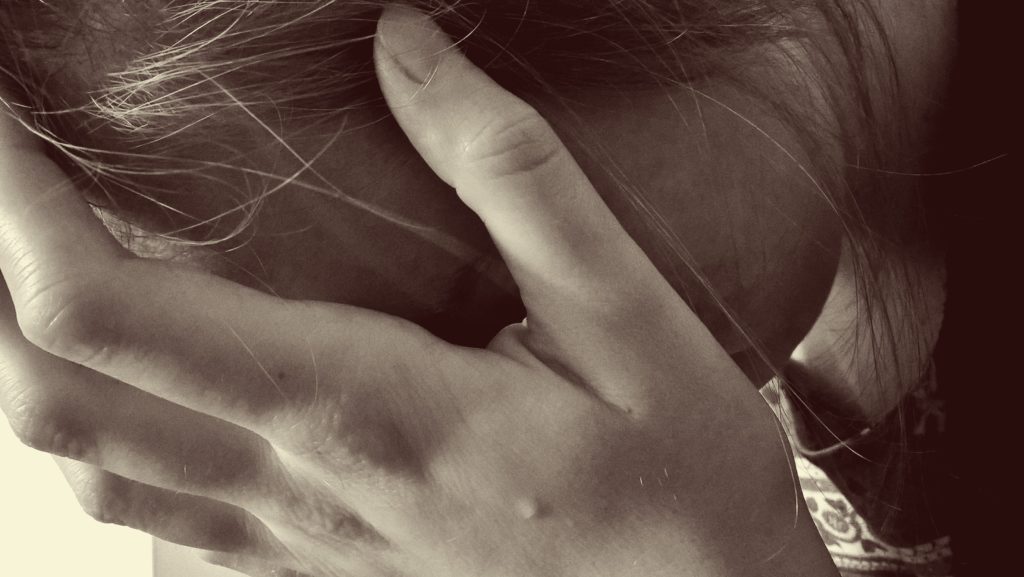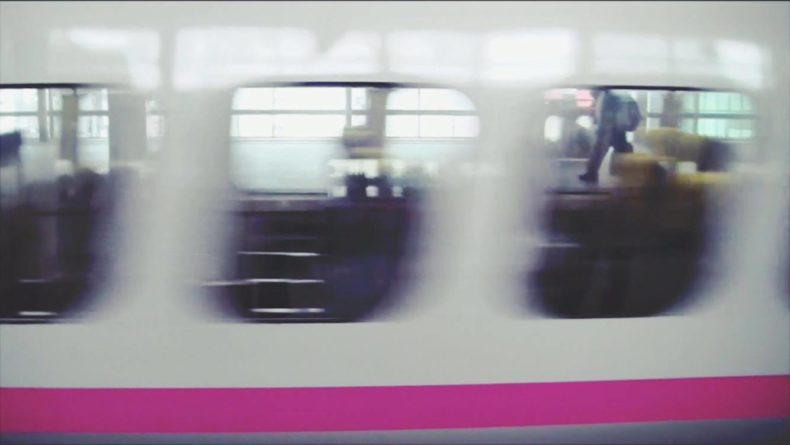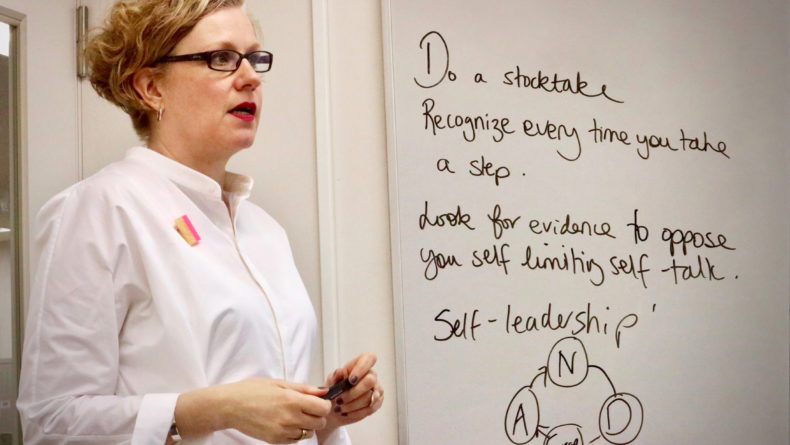Moving On: Giving Tokyo, The City Where I Got Sick, A Second Chance
Developing A Chronic Illness, Leaving It All Behind...Only To Come Back Again
Julia Mascetti was having the time of her life exploring Japan when at the age of 23 she developed a chronic condition called Interstitial Cystitis. Here's her story on how she survived the illness and why she chose to give Tokyo a second chance.
My struggle with chronic illness in Japan taught me some Japanese. Zannyokan can be found on language trivia websites as a term with no English equivalent. It means, “the feeling that one’s bladder has not emptied, despite having urinated.” I learned lots of new words in Japanese: pain, bladder, kanshitsuseibokoen — interstitial cystitis (IC*). Just words for many, but they came down on me like a sledgehammer, shattering the life full of hopes I had built for myself in Tokyo.
Getting Sick
It was spring 2016, and I had been in Japan for six months. I had followed my boyfriend to Tokyo, initially starting a job as an English teacher. That job didn’t work out, so I quit to become an early-years music teacher. I was loving exploring Japan and was excited about my new job. But then the pain came. At first, I wasn’t worried and thought it was just a urinary infection, but I started to feel uneasy when after three courses of antibiotics, my symptoms weren’t improving. My doctor took a sample and confirmed there was no infection. He referred me to a hospital and advised me to google “interstitial cystitis.”
Interstitial cystitis, IC, is a bladder condition which affects mostly women. Symptoms include pelvic pain and urinary frequency. If you’ve ever had a urinary tract infection, it’s like that — but worse — and it never goes away. There is no cure for IC, but there are treatments that can help and many patients do go into remission. Then again, many don’t. People with severe IC urinate up to 70 times a day, and their pain could be one of the worst.
 Weeks turned into months and I watched in horror, helpless as my health deteriorated. The hope that I just had a stubborn UTI was fading. It felt like everything I always presumed I would have — a decent job, a normal relationship, a chance to explore the world — were slipping through my fingers to be replaced by Japanese hospital corridors, sleepless nights and pain. It’s hard to explain to the healthy how exhausting it is to be in pain all the time with no guarantee that it’s ever going to get better.
Weeks turned into months and I watched in horror, helpless as my health deteriorated. The hope that I just had a stubborn UTI was fading. It felt like everything I always presumed I would have — a decent job, a normal relationship, a chance to explore the world — were slipping through my fingers to be replaced by Japanese hospital corridors, sleepless nights and pain. It’s hard to explain to the healthy how exhausting it is to be in pain all the time with no guarantee that it’s ever going to get better.
Work wasn’t going well either. Try teaching early-years music when you never know when you’ll have to dash to the toilet. I became anxious to go anywhere because I couldn’t even sit on a train for 45 minutes. On a good night, I wouldn’t get any sleep because I would be waking up hourly to use the toilet. On a bad night, I would wake in tears and limp to the next room, trying not to wake my boyfriend as I cried and cried and cried.
I just had put two and two together and made zero.
I didn’t want to be that complaining foreigner, but I quickly began to lose faith in the Tokyo hospital where I was being treated. One doctor told me it was all in my head. Another didn’t know what my contraceptive coil was and I had to google it on my phone to show him. “That’s what’s causing your symptoms. Get it removed and you will feel better!” Another doctor piled on strong antibiotics. For months. Despite no sign of infection. I was starting to feel unsafe.
Going Home
I reached a turning point when I messaged a friend back home, saying I was not sure I wanted to live. I wasn’t a danger to myself, I just had put two and two together and made zero. If I couldn’t work, couldn’t have sex, couldn’t have a family, couldn’t eat, drink or wear what I want, then what was left? I looked into my future and saw nothing. The morbidity of my words shocked me into realization. It was time to give up on Japan, as much as I didn’t want to. My boyfriend had been a saint, but he was as frustrated with the doctors as I was. It was clear we were getting nowhere. I got on a plane to the UK, and after years of living independently, I was back with my parents.
It was time to give up on Japan, as much as I didn’t want to.
I almost wept with relief after my first appointment with my British doctor. He was experienced with IC, and I felt safe. The psychological scars from being ill in a foreign culture had made me believe that my life was over, but from our first appointment, he gave me hope. We tried various treatments until we found some that worked and slowly my condition began improving.
A Second Chance
It’s spring 2017, and I’m in a tentative remission, sitting in my childhood bedroom. I’ve been offered a content writing job, and I could stay where life is easy, driving to work on country lanes and eating my dad’s cooking every night. After being burnt by Japan, a part of me craved stability like never before. But the greater part of me missed what I had left back in Tokyo: the opportunities I never had the chance to fully explore. Before I got sick, I was the happiest I had ever been in Tokyo. I kept thinking that letting the illness win was not what I wanted. And, here I was, on a plane to Tokyo once again.

Moving On
Things are different the second time I came to Tokyo. I’m now teaching music part-time while carving out a name for myself as a freelance harpist, something that perhaps I wouldn’t have had the courage to do pre-IC. The naive contentment that nothing bad will happen to me is dead. But, there is also a gratefulness where there wasn’t before. Every pain-free day is a blessing.
Sometimes I think I’ve moved on too much. I feel so healthy these days, that sometimes it feels like it was all a terrible nightmare. A part of me wants to forget. But I know that sweeping my year of hell under the carpet is disrespectful to the millions of people still suffering.
Before I got sick, I was the happiest I had ever been in Tokyo.
When I was feeling utterly isolated in Tokyo the internet was a beacon. I discovered that there were lifestyle changes I could make to help myself, and I stopped feeling so alone. It may well be that the online IC communities saved my bladder and my sanity, and I am eternally grateful. I read stories of women with IC whose husbands had left them, who had become homeless, who had been sectioned because people refused to believe their pain was real.
Several people have said that I will look back on my experience with IC and be grateful as it made me stronger. Perhaps they have a point. I always suspected I was a fighter, but now I know for sure. I feel like I now I have a second chance for experiencing one of the most exciting cities in the world. And I know that I’ll live fiercely, not wasting even a minute of what Tokyo can offer.
*If anyone suspects they have IC, I thoroughly recommend the International Cystitis Association for information and the IC Support Network for hope. You are not alone.
“Moving On” is Savvy Tokyo’s new personal stories series about taking new challenges, leaving the past behind and embracing the future — even when nothing makes sense and the road ahead is blurry. Are you new to Japan? Did you leave behind something to move here? Have you closed a door to open a new one recently? We’d like to hear your story. Contact us at editorial@gplusmedia.com
















Leave a Reply